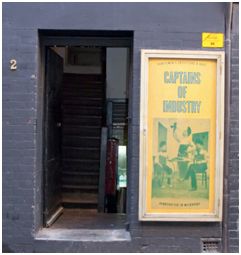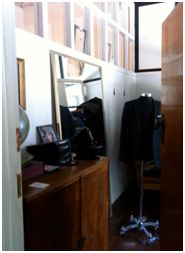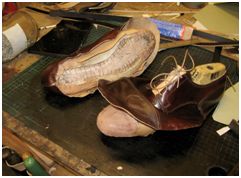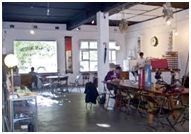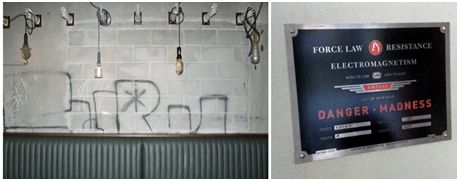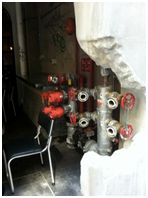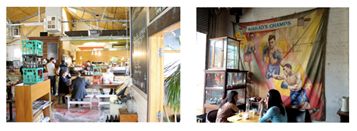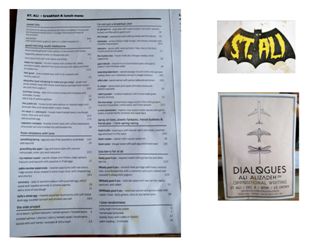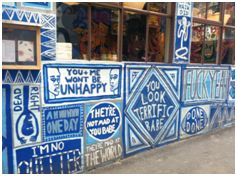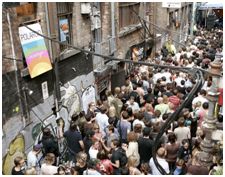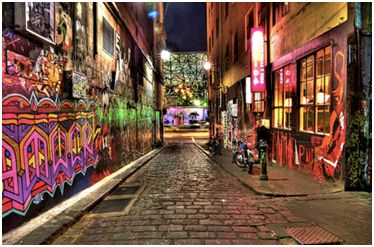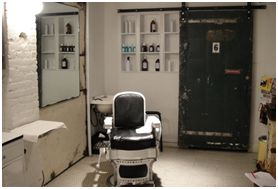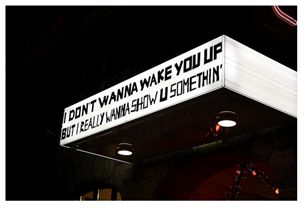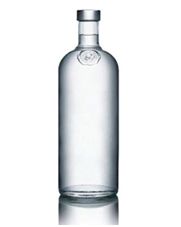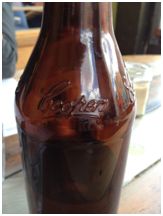The article is written by Greg Taylor, Director of Brand Provocation at Elmwood, London
It’s the beginning of a new year. Let’s seize the opportunity to take stock, think about the future and take a fresh outlook on 2012. What are we going to need to make the most of the months ahead? The prediction for 2012 is daggy-ness!
Why?
Two reasons. One, homogenised and over orderly thinking isn’t going to get us to the type of breakthrough creativity required to be successful in a world of such economic uncertainty. And two, we need to re-capture our sense of wonderment. Rebelling against uniform thinking and regaining a sense of what is remarkable will inspire us to believe in ‘the art of possibility’ and fuel our desire to fulfil not only our own potential but that of others too.
But what the hell is daggy?
I came across the word on a recent trip to Melbourne, in conversation with David Cairns, our MD down under. It was used to describe much of my experience of the place, meaning ‘untidy’, ‘eccentric’. As a Pom, I’m guessing it may also be related to the word ‘dag’, used to describe an ‘amusing and unusual person’. It struck me that untidy, eccentric and unusual brought a kind of randomness and surprise to the way some people were doing things there. It felt spontaneous. Perhaps much of it has to do with the Aussie ‘just have a go’ mindset. Overall, it created a sense of optimism and creativity, that good stuff is possible. And that’s a spirit we could all benefit from.
Meet Melbournia’s dags
First up are Captains of Industry, a venue that’s part café, part gentleman’s-outfitter and soon-to-be whisky bar. This place adds a new level to the idea of ‘meet the makers’. Established by tailor Thomas Grogan and shoemaker James Roberts, this is a place where the young men who deftly serve up coffee and lunch are also working craftsman. They can create an impeccable bespoke suit from the best Italian or English fabrics or fine leather shoes in their adjoining studios. And you can take a peek while waiting for your coffee.
Next up is Vernon Chalker, Melbourne’s foremost impresario of gin-sodden good times. He runs Gin Palace, Madame Brussels, and Collins Quarter and has now opened Bar Ampere, an all-day, all-night affair nestled in Russell Place next to an electrical substation. For those of you that need a reminder, the ampere is the measurement of electrical current.
Bar Ampere is distinguished by its literacy and eccentricity. There are few venues in Melbourne that could claim to be inspired by Marinetti’s Futurist Manifesto. In keeping with the futurist aesthetic, sous vide — the modernist cooking technique du jour — features heavily.
Meanwhile, over in South Melbourne the original St. Ali is far grungier than its recently launched London counterpart — and all the better for it. Nooks and crannies around an old warehouse have been converted into dining spaces and the chairs are essentially found objects such as old chairs and planks of wood. In short, it’s eclectic and very cool.
Its tone of voice is very playful — just check out the menu. St Ali even taps into Melbourne’s nominal origins in its logo, as the city was once dubbed Batmania. And every month, a creative thinker gives a talk as part of St Ali Dialogues. Ali Alizadeh, poet, novelist, critic and playwright was recently speaking about what it means and what it feels like to write oppositional texts in the current cultural and political climate.
Finally, perhaps the Laneways best capture Melbourne’s daggy approach. They are a series of narrow enclaves in the Central Business District (CBD) covered in graffiti and street art. Their dishevelment forces us to look at this inner city landscape in new and surprising ways, crashing the autopilot we use to navigate the typical bland high street. What is more, the fact that street art is continually worked over, ironically vandalised by fellow graffitists, means that the Laneways are continually evolving creatively. And every year, they host the Laneways Festival, an event designed to celebrate what’s fresh in urban music.
Is daggy becoming a worldwide phenomenon?
Daggy doesn’t appear to be restricted to Melbourne. It’s on the rise in places like New York’s East Village at hipster attractions like The Blind Barber, which combines the charms of an old-fashioned barber shop with the delights of a speakeasy. After a haircut and hot towel shave, you can retreat beyond the sliding door to experience the wonder of an old school cocktail lounge.
Daggy is against all that is stereotypical. By its very nature, it takes a swipe at the pretentious. Take a look at Brookyn Fare’s use of napkins to poke fun at the over-the-top coffee house. Or over in London’s Kentish Town, The Southampton Arms takes a gentle dig at poncy gastropubs, reminding us that they are ‘a cash only pub, no cards, we don’t have a phone and we don’t take bookings, reserve seats, tables, areas or any of that caper’.
Imperfect is the new perfect
Maybe we are drawn to daggy because it’s more human —daggy is warts and all, it has character, and more than ever, the world needs character. Tom Michelberger got it right with the inspiration behind his Berlin hotel: ‘perfection doesn’t create memories because memories only result from movement, from a lively experience of interaction — with people, the surroundings and atmosphere’.
Some smart brands are picking up on daggy and recognising the need to go beyond generic marketing. For more than a couple of decades, Absolut has been a marketing machine, producing memorable images and working with the best in the fields of art and design. Going in a completely different direction, Absolut introduced a ‘no label’ edition. And that’s something Melburnians would appreciate as they take a sip of water from an unlabeled, re-used bottle of Coopers in between their flat whites.
About the Author

Greg Taylor became founding partner in global brand design consultancy Elmwood in 1989. Now Director of Brand Provocation, Greg is the creator and facilitator of Step Change™, Elmwood’s strategic tool for moving ideas forward. Clients include ASDA, Wal-Mart, Arla Foods, BBC, COI (Defra and DfT), Cable&Wireless, Comic Relief, Debbie & Andrew’s, Durex, Glasgow 2014 Commonwealth Games, McCain, and the Met Office.
